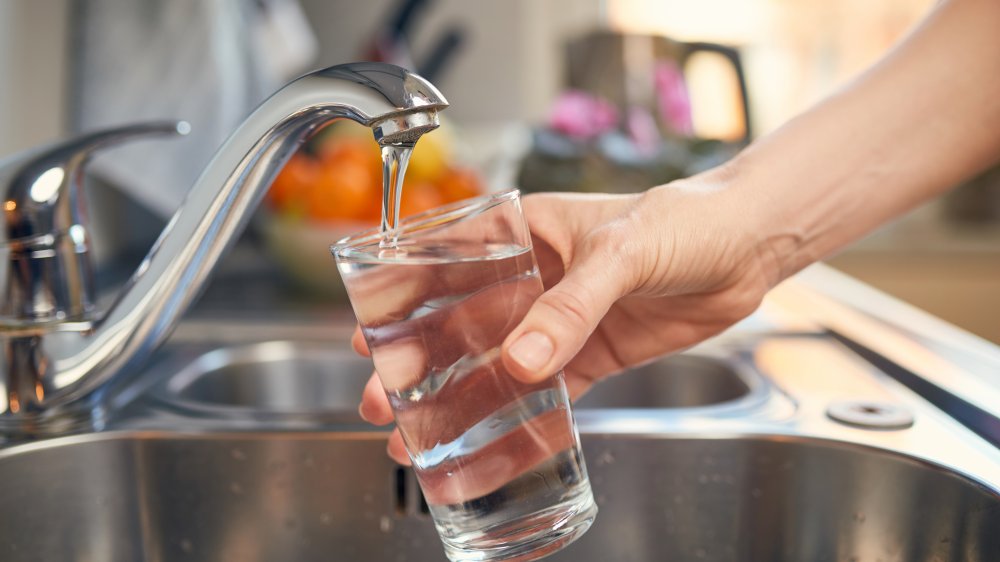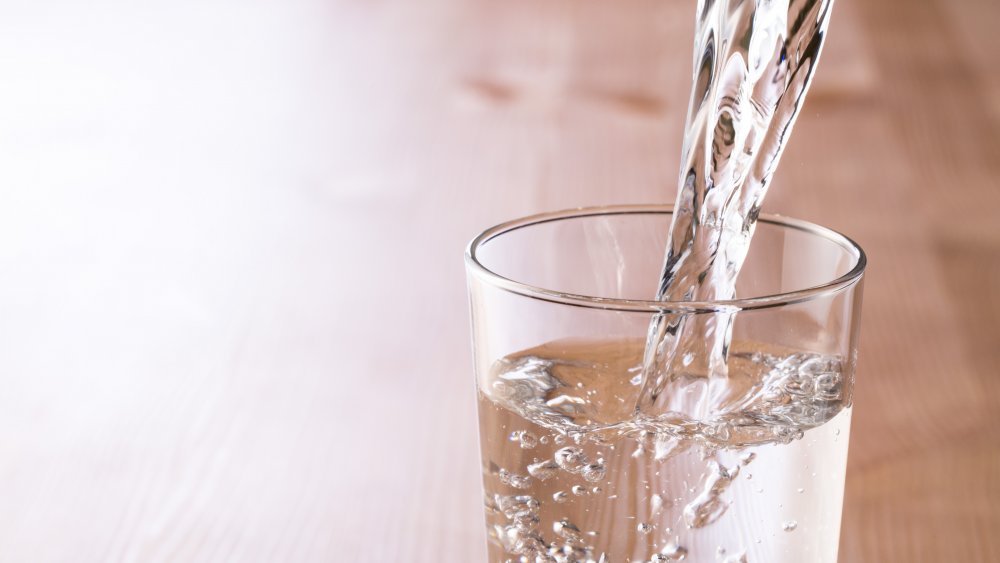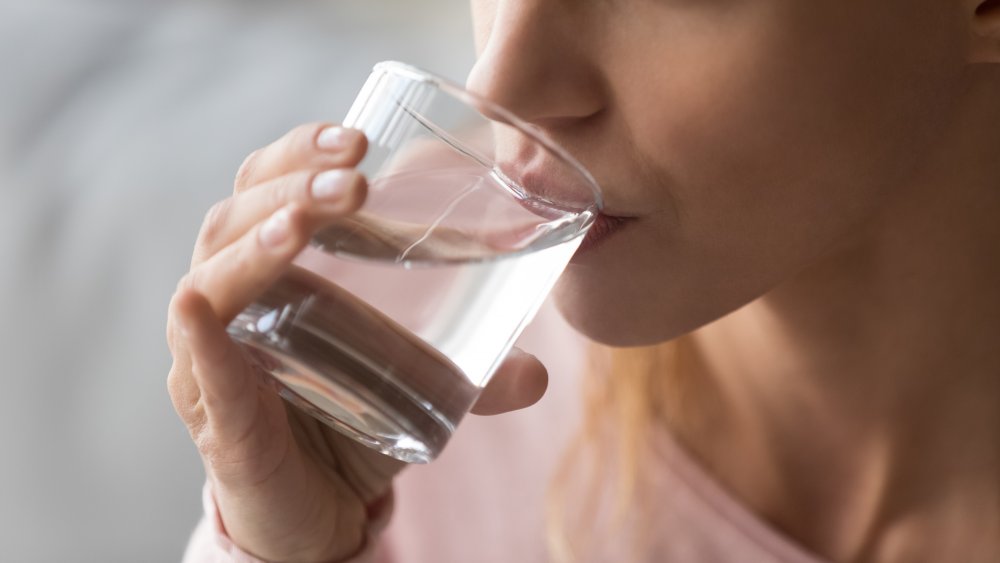Myths About Tap Water You Can Stop Believing
We've got plenty of notions when it comes to tap water. That it's not clean. That it tastes bad. That it is in some way inferior to bottled water. To understand at least the biggest myth surrounding tap water, we'd have to look at the reason why bottled water first became popular.
Bottled water first appeared in America during the early 19th century, when drinking (and bathing in) mineral water at resorts in New York and West Virginia was fashionable. These waters were essentially sold as medicinal supplements that could cure everything from liver and kidney ailments to fevers. But Serious Eats says there was another reason people drank bottled water – and that was because the output from those early urban water systems were as dicey as it got. That changed during the early 20th century, when chlorine was added to water supplies, making tap water safe to drink. Other than the occasional (highly publicized) health scares and accidents, including a parasite outbreak in Milwaukee in 1993, and the discovery of lead in Flint, Michigan in 2014 (via US News) – tap water continues to be safe to drink today.
Myth: Tap water is not as healthy as bottled water
Would scientists recommend drinking bottled water over tap water? Tasha Stoiber, a senior scientist with Environmental Working Group tells US News, "We don't recommend using bottled water unless it's in the case of an emergency or something has gone very wrong, like in the case of Flint, Michigan, where there's no safe water for anyone to drink." Stoiber says its also best to keep bottled water on hand for emergencies, when clean tap water cannot be guaranteed, "like a hurricane, that would be a situation where bottled water would be your last resort or maybe only choice for clean drinking water," Stoiber says.
There are other reasons why scientists prefer tap water to bottled water. Not only do bottles have a negative impact on the environment, many plastic containers which are used to house bottled water contain bisphenol A, or BPA, which has been linked to health problems like breast cancer. Registered dietitian Cathy Leman tells US News that because "[there is] no mandatory testing program in place, the quality of bottled water can be questionable."
Myth: tap water tastes bad
Science is on your side when you tell your friends water has a taste, and Healthline says that flavor comes from minerals that are usually found in water, including calcium, phosphorous, sodium, magnesium, and potassium. Scientists also believe that you react to water when it has a weird, unfamiliar taste because that funky taste could trigger a warning to your brain that that the water is contaminated. Yet research shows no matter how much people say they can taste the difference between tap and bottled water, blind tests indicate otherwise. Researchers involved in a small study presented six types of mineral water and six types of tap water to nearly 400 consumers. The findings, which were reported in the Journal of Sensory Studies back in 2010, indicated that dechlorinated tap water and bottled water were viewed in the same way by those involved in the tests.
But having said all that, if your immune system is compromised, Mayo Clinic suggests you may want to consider protecting yourself by boiling tap water, or drinking bottled water, just in case there really is something in your tap water.


